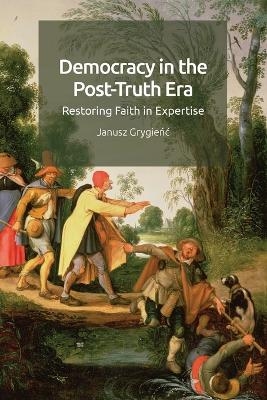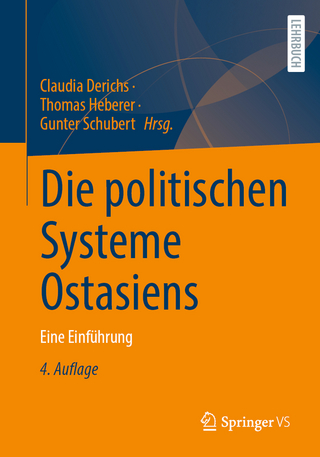
Democracy in the Post-Truth Era
Restoring Faith in Expertise
Seiten
2024
Edinburgh University Press (Verlag)
978-1-4744-9731-2 (ISBN)
Edinburgh University Press (Verlag)
978-1-4744-9731-2 (ISBN)
- Lieferbar (Termin unbekannt)
- Versandkostenfrei innerhalb Deutschlands
- Auch auf Rechnung
- Verfügbarkeit in der Filiale vor Ort prüfen
- Artikel merken
Criticises the carefree optimism of liberal theory towards the problem of expert knowledge
The world of post-truth is a world of intense disinformation, an offensive of pseudoscience and widespread scepticism about expert knowledge. It is a world in which the terms of the political game are imposed by illiberal democrats who undermine the authority of scientific institutions. The liberal-democratic politicians have had to take up the gauntlet thrown down to them in this way. However, according to the book's author, they have not been followed by liberal theorists. Liberal theorists have never attempted to confront the pessimistic vision of a world in which citizens cannot distinguish expert from pseudo-expert and science from pseudo-science. The dominant liberal theories are based on the assumption that citizens are either competent to participate in major political decisions or that they can easily acquire such competence. The book strikingly explores a very different perspective. How would the theory and practice of liberal democracy have to change if we assume that laypersons will never appreciate the relevance of the arguments put forward by experts?
The world of post-truth is a world of intense disinformation, an offensive of pseudoscience and widespread scepticism about expert knowledge. It is a world in which the terms of the political game are imposed by illiberal democrats who undermine the authority of scientific institutions. The liberal-democratic politicians have had to take up the gauntlet thrown down to them in this way. However, according to the book's author, they have not been followed by liberal theorists. Liberal theorists have never attempted to confront the pessimistic vision of a world in which citizens cannot distinguish expert from pseudo-expert and science from pseudo-science. The dominant liberal theories are based on the assumption that citizens are either competent to participate in major political decisions or that they can easily acquire such competence. The book strikingly explores a very different perspective. How would the theory and practice of liberal democracy have to change if we assume that laypersons will never appreciate the relevance of the arguments put forward by experts?
| Erscheinungsdatum | 07.11.2024 |
|---|---|
| Zusatzinfo | 2 black and white illustrations |
| Verlagsort | Edinburgh |
| Sprache | englisch |
| Maße | 156 x 234 mm |
| Themenwelt | Sozialwissenschaften ► Politik / Verwaltung ► Politische Systeme |
| Sozialwissenschaften ► Politik / Verwaltung ► Politische Theorie | |
| Sozialwissenschaften ► Politik / Verwaltung ► Staat / Verwaltung | |
| ISBN-10 | 1-4744-9731-4 / 1474497314 |
| ISBN-13 | 978-1-4744-9731-2 / 9781474497312 |
| Zustand | Neuware |
| Informationen gemäß Produktsicherheitsverordnung (GPSR) | |
| Haben Sie eine Frage zum Produkt? |
Mehr entdecken
aus dem Bereich
aus dem Bereich
eine Einführung
Buch | Softcover (2023)
Springer VS (Verlag)
39,99 €


